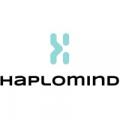Utiliser la digitalisation des données de santé pour fournir des soins personnalisés de qualité afin de traiter la dépression et l’anxiété périnatale (conférence donnée en anglais)
By Sonali Quantius, Ph.D., Senior Scientist at ETH Zürich, Founder at Haplomind
Abstract : Haplomind is an integrated digital maternal mental healthcare solution which aims at reducing barriers to access and addressing the treatment gap for women and their healthcare providers in a secure, citizen-owned privacy model.
Full link for the conference : https://teams.microsoft.com/l/meetup-join/19%3ameeting_MWFhNWE5ZDgtYzVhMy00NjY2LWFlMGEtMWQ1YWU3NDhmNDI5%40thread.v2/0?context=%7b%22Tid%22%3a%22a372f724-c0b2-4ea0-abfb-0eb8c6f84e40%22%2c%22Oid%22%3a%22c21ec14d-2909-4368-805b-2b8089e86f69%22%7d
***
Short description :
Depression and anxiety are the most common mental health issues experienced by women during the pregnancy and post-partum (‘the perinatal’) period but there remains a huge gap in the screening, diagnosis and access to timely care in Switzerland and worldwide. Most clinicians use questionnaire-based scales such as the Edinburgh Postpartum Depression Scale (EPDS) and the Patient Health Questionnaire-9 (PHQ-9) to measure depression. However, they are not used consistently in Switzerland nor are they validated for their sensitivity or specificity in a Swiss population as an effective tool for screening for perinatal depression. Lack of accurate and timely screening leads to many women not diagnosed or treated early, leading to devastating consequences.
Women who get screened for PMD accurately and on time, still face challenges in accessing appropriate therapies that are not ‘one-size-fits-all’. Medication (antidepressants) are usually the first option in Switzerland, where women are 50% more likely than men to receive antidepressants. It is critically important to ensure that there is no unnecessary over-treatment (i.e., there is easy access to non-medication options) while at the same time ensuring that the first line of treatment works quickly at this vulnerable time, especially for women who need them, i.e. who are moderately to severely depressed and are at the risk of psychosis during pregnancy and postpartum.
The reality is that healthcare systems cannot meet existing (or future) demands for face-to-face psychological therapy, or the quality of psychological care in terms of timeliness or accessibility that has been recommended for pregnant and postpartum women. E-health strategies, in particular mobile health interventions have been proven to be highly successful in the screening, detection and treatment of mental health issues, e.g. depression, in various studies worldwide. However, perinatal depression poses unique symptoms and situations and clinical presentations (e.g. fears of childbirth; intrusive thoughts of harm to baby, hormonal imbalance etc.) that general mental health apps do not address.
Haplomind is addressing the above issues by a web-based platform that will enables pregnant and postpartum women to securely track their mental health and if their scores indicate mild to moderate depression/anxiety, providing access to self-care, peer support, and professional support. At the same time, healthcare professionals will be able to access the platform to have access to best practices and resources for their patients. The data generated is stored in a decentralized data storage that the women control themselves and provide access to researchers and pharmaceuticals for women-specific therapies.






